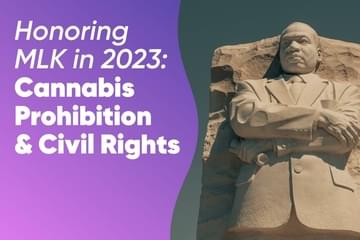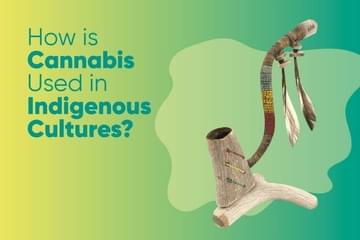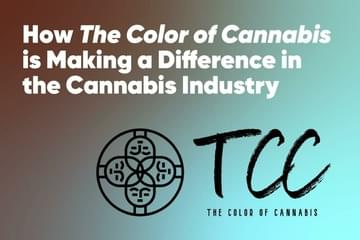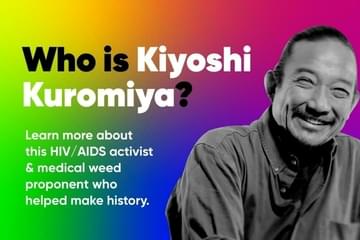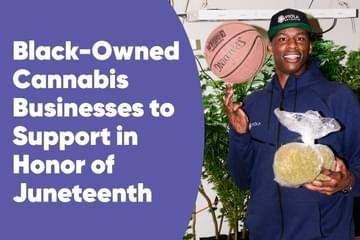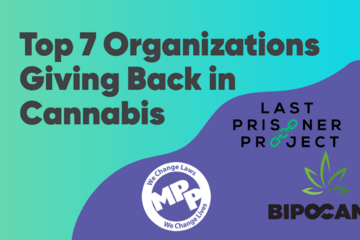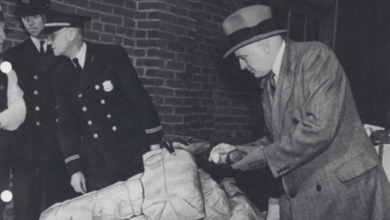
The Man Who Started Cannabis Prohibition: Harry Anslinger
Published on 4/3/21
Against the backdrop of Black Lives Matter and a society slowly coming to terms with the systematic racism that has flourished in this country for centuries, many people are scrutinizing marijuana's legal status and the motivations behind its prohibition. America's racist history can be seen through the history of cannabis in this country. Need proof? Check out the recently-released film, The United States vs. Billie Holiday. This movie brings our attention back to Harry Anslinger, the man responsible for the nearly century-long prohibition on cannabis. Who is Harry J Anslinger? What were his motives? Why is it important we talk about him? Let's dive in.
The Man Responsible for the Cannabis Prohibition
 Wikipedia
WikipediaBorn in Altoona, Pennsylvania in 1892, Harry J Anslinger grew up the son of an immigrant railroad worker. He quickly rose from his humble origins, working for the railroad police, operating overseas at the end of World War I as an intelligence operative and acting as an agent against rum-runners in the Bahamas during the prohibition. According to Anslinger's later testimonies, from an early age, he was keenly aware of narcotics and their potentially devastating effect. He was also adamantly against the Mafia, a stance against the anti-establishment that bled into his professional career working on the side of prohibition. In 1930, his professional career and personal affinities culminated when he was appointed as the founding commissioner of the Federal Bureau of Narcotics (FBN), which would shift the course of his life (and American culture and drug policy) forever.
The Beginning of the Cannabis Prohibition
 Pixabay
PixabayUnder President Hoover, the FBN was founded to uphold the Harrison Narcotics Act of 1914, prohibiting doctors from prescribing opiates to uphold an international policy against opium use. Immediately following, the Harrison Narcotics Act was government-run racist propaganda that positioned cocaine users primarily as black and Asian men. Around this time, the idea of hysteria and white women being taken advantage of by men of color due to drug use was implanted into the American psyche. Before it began its attack on cannabis, the FBN's main concerns were international trafficking of heroin, morphine and cocaine, but because there were a relatively small number of users within the United States. When the FBN began to lose funding and Anslinger was at risk of losing his job, he finally began targeting cannabis.
Before the mid-1930s, Anslinger took a relaxed and fairly unconcerned stance on cannabis. He claimed it was no big deal and that it was ridiculous to think it could make anyone "mad" - a prevailing myth at the time. This changed in the 1930s when Anslinger began to crack down hard on cannabis and used racism and xenophobia to make sure it stuck (using tactics very similar to those used immediately after the passage of the Harrison Narcotics Act. Even from his early days with the FBN, Anslinger was a known racist - there were attempts to fire him over hateful remarks against black people, but they never amounted to anything. His racism and ambition to rid America of all drugs combined to create the foundation of what we now know as the American War on Drugs - a phrase first used by Anslinger.
A racist agenda was used to turn America against drugs just as much as drugs were used to cement American systemic racism. In the mid-1930s, Anslinger began his crusade against cannabis by claiming that it was a scourge against America's youth, turned people mad and it was primarily a drug being used in black communities. However, black Americans weren't the only minority he was after. His campaign against cannabis included the use of the word "marihuana" (or marijuana), hoping that the Spanish word for cannabis would associate the drug with Mexicans and immigrants of color.
It wasn't long before American sentiment favored the Harry Anslinger marijuana mindset. In 1937, he wrote an article for The American Magazine, titled "Marijuana, Assassin of Youth," which claimed that white women and children were being endangered by the use and spread of marijuana. He looked for examples of violent drug-related crimes and used these outlying, often untrue episodes to create a myth surrounding marijuana. In the same year, Anslinger testified before Congress and passed the Marijuana Tax Act of 1937, which essentially made the use and possession of marijuana illegal - this Act marked the true beginning of the American marijuana prohibition.
Harry Anslinger and Billie Holiday
 Flickr
FlickrNot long after the Marijuana Tax Act of 1937, Anslinger began targeting celebrities and especially jazz musicians for drug use. Now that marijuana was effectively illegal and American sentiment was overwhelmingly against drug use, Anslinger pushed his racist agenda further. He hated jazz, aggressively writing against its legitimacy and its Caribbean and African roots; and so, he began to orchestrate a massive arrest of popular jazz artists of the time such as Charlie Parker and Louis Armstrong. However, the Treasury Department eventually told Anslinger to give up his idea, claiming that it was a waste of time. Still, he pursued several artists in particular.
Billie Holiday was his primary target. She received her first threat from the FBN in 1939, which was the beginning of two-decades of harassment and defacement. He sent an agent to gain her trust and catch her in possession, but it was Billie Holiday's husband that would eventually give Anslinger enough to arrest her. In 1947, he tried and sentenced Holiday to one year in prison. After she got out, she was banned from playing anywhere that sold alcohol - and yet, Anslinger continued to harass her. In May 1959, Holiday went to the hospital after collapsing from cirrhosis of the liver. While she was in the hospital, FDN agents claimed to have found a small amount of cocaine on her and placed her under arrest in her death bed.
The War on Drugs and Anslinger's Legacy
Anslinger's relentless racist tactics in his campaign against marijuana and drug use in America have had a massive lasting impact. He remained the head of the FDN for a total of 32 years, retiring in 1962. In 1970, Nixon continued Anslinger's rhetoric and leaned on racist tactics to fuel America's official War on Drugs with the Controlled Substance Act. Disproportionately targeted in the War on Drugs, Black Americans are still 3.6x more likely to be arrested for marijuana possession than white people. The problems and systematic racism we are finally beginning to address have long been sewn into the fabric of our systems. We hope, however, that we are at a turning point and that by talking about who this man was and the truth behind our society's relationship with drugs, we can shift the narrative so that we don't continue repeating these unjust mistakes.
The United States vs. Billie Holiday has brought Harry Anslinger back into the cannabis narrative. Help us continue the conversation. How do you feel about the prohibition on cannabis and what steps should we take as a nation to adjust the actions of Anslinger and the politics and the hate he represented? Comment below.









